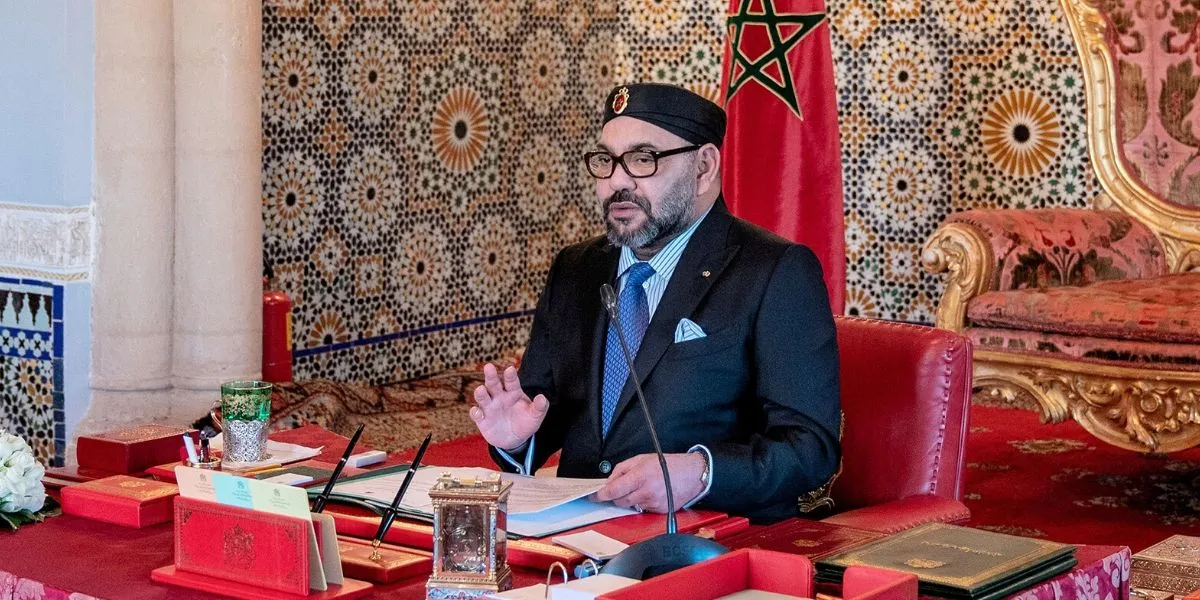King Mohammed VI affirmed that interfaith dialogue, meaningful coexistence, understanding and cooperation for the accomplishment of humanitarian goals would be key levers to build on in order to spare humanity the evils of strife, affliction and suffering.
In a message he addressed this Tuesday to the participants in the International Parliamentary Conference on “Dialogue of Religions… Let’s Cooperate for a Common Future,” held in Marrakesh June 13 – 15, the King stressed that however, “this cannot be achieved unless we put words into action, show a keenness to revisit the concept of interfaith dialogue and achieve a quantum leap in collective awareness of the importance of dialogue and coexistence, and of the perils represented by persistent reclusiveness, fanaticism and introversion.”
The Sovereign expressed hope that the Marrakesh Conference, which is bringing together for the first time, parliamentarians, a large number of religious leaders, distinguished scholars, experts and researchers from all corners of the world, “will come up with a rational and convincing response to the drifts towards intolerance, hatred, contempt for religions, and the treatment of people based on their faith, ethnicity or the color of their skin.”
“I am sure your diverse political, intellectual and religious backgrounds constitute a key element for the fulfilment of this ambition. Whereas the parliamentarians participating in this conference are empowered to pass legislation that facilitates dialogue and staves off discourses of introversion and fanaticism, religious leaders and institutions, for their part, have a mission of guidance and awareness-raising; they can summon their spiritual authority to groom and guide, and to warn against perilous inclinations that ruin coexistence and fruitful interfaith dialogue,” the King stated further in his message that was read out by speaker of the House of Representatives.
The Sovereign warned that “fearing a given religion – or, to put it more correctly, prompting feelings of fear of that religion – leads to hatred for the manifestations of that faith and for the civilization associated with it. This, then, leads to incitement against that religion, to discrimination and to acts of violence.” Unfortunately, he deplored, many influential media organizations simply encourage, in their editorial line, a spiral of fanaticism and counter fanaticism.
The King expressed hope that this conference will lead to action plans and that the three components represented there will play decisive roles in their implementation, at the level of each country as well as on a global scale. In this regard, the Sovereign emphasized the need to set a joint mechanism, to be coordinated by the Inter-Parliamentary Union, whose mission would be to make interfaith dialogue a common, lofty goal for the entire international community.
“That goal should be defended in international forums and considered one of the key principles of democratic governance in parliamentary practice, as well as an indicator of respect for pluralism and cultural diversity,” the king insisted, pointing out that since the very basis of coexistence is for religion to serve as a bulwark against extremism – and not a vehicle for it – the enforcement of this principle, together with due respect for other faiths, require pedagogical and educational efforts by schools, universities, the media, religious institutions and responsible public debate platforms.”
Expressing hope that the conference’s declaration will include practical suggestions to achieve this objective, the King underlined the devastating consequences of disrespect and contempt for religions, the scale of the internal and transnational disasters they may cause, and their human and material cost to international stability, which is a prerequisite for institutional and democratic development, and for progress and prosperity.
King Mohammed VI who recalled all the efforts made by Morocco and its Kings to enhance the spirit of brotherhood, coexistence, cooperation and cohesion between all Moroccans – Jews and Muslims alike – one of the main pillars of Moroccan civilization, and explained how the urban fabric of Moroccan cities is replete with signs that are of great significance, with mosques, synagogues and churches standing not far from one another, attesting to the spiritual, human and cultural values inherent in Moroccan society, and to the importance of the tolerance underpinning it.
“Although Islam is the religion of the state, the Kingdom’s Constitution stipulates that the state guarantees the free exercise of religious practices for all citizens. As I have always affirmed, in my capacity as King of Morocco and Commander of the Faithful, I am entrusted with ensuring the free practice of religious rites as well as the protection of Moroccan Jews and Christians from other countries, who live in Morocco.”
The Sovereign then stressed the importance he grants to coexistence and dialogue and his commitment to moderation and tolerance, and to the rejection of all forms of prejudice, hatred and extremism, underlining the accomplishments made by Morocco to foster the values of moderation, tolerance and coexistence, including the management of the religious domain and the performance of the institutions created for this purpose, including the ones provided for in the Constitution, and in particular the Higher Ulema Council – the only institution qualified to issue fatwas, the aim being to prevent any deviation from the purpose of fatwas.
The King also referred to the Mohammedia League of Ulema – one of the main partners in the organization of this conference – the Mohammed VI Institute for the Training of Imams, Murshidin and Murshidats, and the Mohammed VI Foundation of African Ulema, which brings together and coordinates the efforts of African Muslim scholars in order to shed light on and promote these values, saying this is in keeping with his commitment to the duty of solidarity and spiritual cooperation with our brothers and sisters in other African countries.
“We should keep in mind that if we manage to foster constructive interfaith, intercultural dialogue, we will be providing answers to many of the dilemmas and challenges threatening the future of coexistence and of our planet. All of us are in the same boat, facing a common destiny. As we rise to challenges, we must ponder on the world we will be bequeathing to the coming generations. This is as much the responsibility of parliaments, religious institutions and intellectual elites, as it is the duty of governments, civil society, and the media,” the King insisted.
King Mohammed VI pointed out that public opinion is misled into believing that what is unfolding is a clash of religions or civilizations. “In fact, and as I stressed more than twenty years ago, at the opening of the 107th Conference of the Inter-Parliamentary Union, what our world is witnessing today is not so much a clash of civilizations as a clash of ‘ignorances’.”
It is, indeed, regrettable that we keep hearing about acts of violence, persecution, and killing motivated by religious and sectarian beliefs, or cultural affiliation. It is also distressing to note that hostility to religions has become a favored subject used by some, as part of their outbidding electoral tactics, King Mohammed VI stated.



